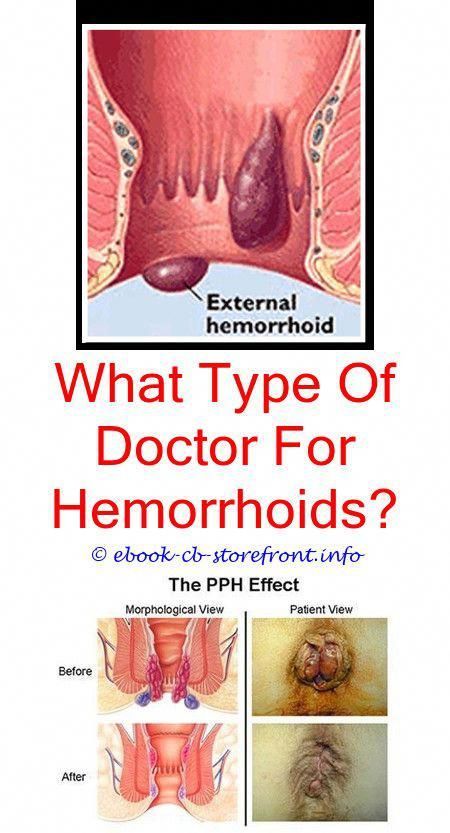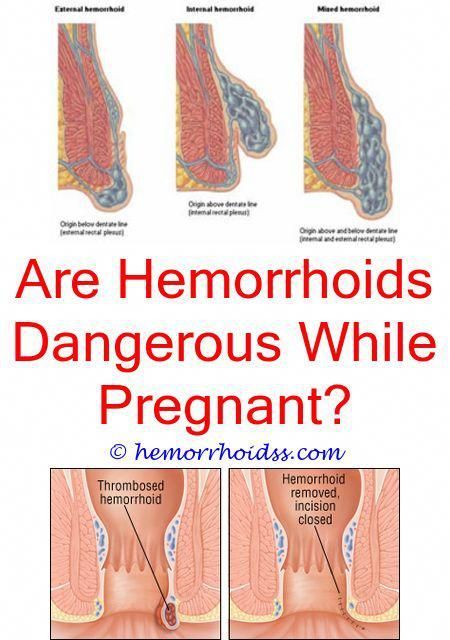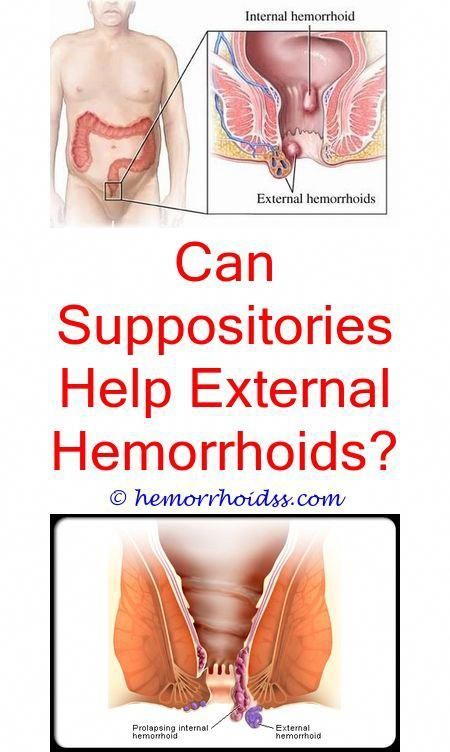What Are The Symptoms
The most common symptoms of both internal and external hemorrhoids include:
- Bleeding during bowel movements. You might see streaks of bright red blood on toilet paper after you strain to have a bowel movement.
- Itching.
- Rectal pain. It may be painful to clean the anal area.
Internal hemorrhoids
With internal hemorrhoids, you may see bright red streaks of blood on toilet paper or bright red blood in the toilet bowl after you have a normal bowel movement. You may see blood on the surface of the stool.
Internal hemorrhoids often are small, swollen veins in the wall of the anal canal. But they can be large, sagging veins that bulge out of the anus all the time. They can be painful if they bulge out and are squeezed by the anal muscles. They may be very painful if the blood supply to the hemorrhoid is cut off. If hemorrhoids bulge out, you also may see mucus on the toilet paper or stool.
External hemorrhoids
External hemorrhoids can get irritated and clot under the skin, causing a hard painful lump. This is called a thrombosed, or clotted, hemorrhoid.
What Can My Doctor Do For Hemorrhoids
There are many ways that hemorrhoids can be handled and treated. These options vary depending on the condition, severity and location of the hemorrhoids. Below are methods that may be employed to treat your hemorrhoids.
1. Injections
Internal hemorrhoids may be injected with a solution that causes a scar to be formed and close off the hemorrhoids. This procedure will only hurt a little but is usually very effective.
2. Cauterization or Coagulation
This method is a painless method of burning off, removing and sealing the end of the hemorrhoids with an electric probe, infrared light or laser beam.
The Coagulation method allows the hemorrhoid to close and shrink and is most effective for treating prolapsed hemorrhoids.
3. Rubber band ligation
Rubber band ligations are also mostly employed in cases of prolapsed hemorrhoids as well as protruding internal hemorrhoids that have been pushed outside .
In this treatment, the doctor will put a small rubber band around the hemorrhoid to cut off blood supply to the tissues therein.
Rubber band ligations will usually cause the hemorrhoid to dry up, shrink in size and fall due to the unavailability of blood.
4. Surgery or Hemorrhoidectomy
For large internal or external hemorrhoids that keep on worsening and bring excruciating discomfort to the patient, a surgical procedure may be required to remove the hemorrhoids or a newer technique using staples may be applied.
Most of these medical treatments are effective in treating hemorrhoids.
What Causes Internal And External Hemorrhoids And Simple Ways To Treat Them
Hemorrhoids are usually caused by increased pressure due to pregnancy, being overweight, or straining during bowel movements. By midlife, hemorrhoids often become an ongoing complaint. By age 50, about half the population has experienced one or more of the classic symptoms, which include rectal pain, itching, bleeding, and possibly prolapse . Although hemorrhoids are rarely dangerous, they can be a recurrent and painful intrusion. Fortunately, there’s a lot we can do about hemorrhoids.
Don’t Miss: What Can I Do To Help My Hemorrhoids
When Should You Visit A Doctor For Hemorrhoid Treatment
Hemorrhoids may be managed by lifestyle modifications, such as drinking plenty of fluids, having a healthy diet rich in fruits and vegetables, and maintaining a healthy weight. This is especially true in the case of small and uncomplicated hemorrhoids in people with good general health. Sitz baths with warm water and potassium permanganate will also help. If you have the following symptoms you must take the doctorâs help right away:
- Hard, tender lumps felt at the bottom
- Anal pain, especially while sitting
- Bleeding from the rectum observed as bright red blood in the stool, on toilet paper, or in the toilet bowl after a bowel movement
- A bulging or swelling may be felt through the anus in case of a prolapsed hemorrhoid
- You have tried over the counter medications for more than a week, but there is no relief of symptoms
When To See A Doctor For Hemorrhoids

How long do hemorrhoids last? The answer to this is variable. Treatment for small hemorrhoids may work within a few days, while larger hemorrhoids may last much longer. Most hemorrhoids can be managed at home but if the or bleeding is severe you are soiling yourself with stool the hemorrhoids keep returning or you are experiencing pain, bleeding and itching from the hemorrhoids after a week, consider seeing your doctor for assessment and treatment.
Although not common, if you experience , , or large amounts of bleeding from your rectum, this is an emergency and you should seek medical help immediately.
Read Also: How Do You Know If You Have Hemorrhoids
Signs And Symptoms Of Piles
Mild piles can often go unnoticed, but they have a range of symptoms, especially regarding your bowel movements.
Pain
Piles can range from painless to severely painful. Sharp pain or a pinching feeling may occur when youre sitting on the toilet or passing a stool. The anus or area between your buttocks may also feel sore, especially after a bowel movement.
Itching
Piles can cause an itching sensation around the anus. Often, scratching can make it itch more.
Bleeding
All types of piles can bleed, even if youre not experiencing any pain. Bright red blood can appear in the stools and the water surrounding it, or on used toilet paper.
Lumps
Tender lumps of skin can develop outside the anus. You may be able to see one, or feel it as you wipe after a bowel movement.
Schedule An Appointment Today
Hemorrhoids are incredibly common and can be successfully managed with the right treatments. If youre concerned you have hemorrhoids or if theyre not improving, schedule an appointment with Dr. Heiman in Tampa, FL, today.
Disclaimer: This blog is not intended to substitute professional medical advice. Always talk with your doctor before starting or stopping medications or treatments.
Recommended Reading: How To Fix Bleeding Hemorrhoids
Can Hemorrhoids Go Away And How Long Do They Last
Hemorrhoids or piles are inflamed or swollen veins in your lower rectum and anus. Hemorrhoids are usually the outcome of putting too much strain during bowel movements. Increased pressure on these veins may be the reason why you’ve developed hemorrhoids during pregnancy. You may have internal hemorrhoids or you may have external hemorrhoids. Many people try different things to limit the discomfort they experience with hemorrhoids, while others wait for it to go away. This leaves people with a question,”Will hemorrhoids heal on its own?” Keep reading to find answer to this question.
When To See A Doctor About Hemorrhoids
Talking about rectal problems like hemorrhoids can feel embarrassing. But this common problem affects an estimated 3 in 4 Americans sometime during their lifetimes half of them by the time they turn 50.
With hemorrhoids being such a widespread problem, its no surprise that local drugstores have plenty of treatments promising to help. But what if over-the-counter treatments dont help? Can medical care solve your problem and relieve your discomfort?
At Paonessa Colon & Rectal Surgery, we say, Yes. And the good news? Getting medical hemorrhoid treatment doesnt always mean you need surgery. In fact, you can rest easy knowing that most of the time, it doesnt.
Board-certified general surgeon and proctologist Nina J. Paonessa, DO, leads our team. Shes a specialist who is well-known for her medical expertise as well as her passion for making her patients feel comfortable when addressing this sometimes embarrassing condition. Dr. Paonessa is also the only female colorectal surgeon in Ocean and Monmouth counties, New Jersey.
Also Check: What Do Internal Hemorrhoids Look Like
What Is The Best Doctor For Hemorrhoid Surgery
There are many reasons you may see a doctor for your hemorrhoids. But, some cases may require you seek treatment from a doctor who specializes in the treatment of conditions that affect the rectum or anus.
While a proctologist is commonly known as the specialist to handle these types of conditions, it is actually a gastroenterologist that treats hemorrhoids.
Gastroenterologists diagnose and treat conditions that affect the digestive tract. This can include the:
- Stomach
- Inflammatory bowel disease
- Bowel changes
Some gastroenterologists perform surgery under anesthesia. In more severe cases, your GI doctor may refer you to a proctologist, or colorectal surgeon.
Most patients who see a colorectal surgeon must see a GI doctor first for a referral.
How Do Doctors Check For Hemorrhoids
There are many methods for diagnosing hemorrhoids. Your Doctor may be able to tell that you have an external hemorrhoid by simply looking while internal hemorrhoids can be diagnosed by using a few procedures to examine your rectum and anal canal.
One of the ways of checking for internal hemorrhoids is by digital examination .
In this procedure, your doctor will put some medical gloves on and insert a lubricated finger into your rectum.
Your doctor will then proceed to see if there is anything unusual such as lump and growths and the result from this examination will suggest if there is need for further testing.
A visual inspection may be needed in some cases as internal hemorrhoids are often very soft. During a visual exam, an anoscope, sigmidoscope or proctoscope may be used.
Also Check: What’s Good For Hemorrhoids Over The Counter
Feeling You Cant Empty Your Stool Completely
If you have prolapsed internal hemorrhoids, they can cause the sensation that you have stool stuck at your anus. You may also have difficulty cleaning yourself or notice a mucous discharge following a bowel movement because of the displaced tissue.
Dr. Paonessa can remedy these symptoms by treating the hemorrhoid.
When Exactly Is The Right Time To Do This

It is perfectly okay to head to your hemorrhoid doctor if you experience hemorrhoids irrespective of the extent of the pain and location of the hemorrhoid.
However, due to how common hemorrhoids are, many people will often elect to try some self-medications that are usually effective in controlling and treating the condition.
External hemorrhoids can very painful especially if they become thrombosed .
If your hemorrhoids do not shrink or relief you after a few applications with everyday solutions like Tuck pads or Witch hazel pads, it just might be time to go to see your doctor.
If you experience any type of rectal bleeding, and pass stool that look maroon in color, it is a sign of continued bleeding and a Doctor should be visited in this case also.
If you initially developed an internal hemorrhoid and the lump inside the anus enlarges or becomes more painful it is best to see a doctor.
You should also consult on your hemorrhoids when a tissue from inside the anal canal bulges out. This is called a prolapsed hemorrhoid.
If it does not return or you cannot push it back in manually, you should immediately see a doctor.
Don’t Miss: What Type Of Doctor Specializes In Hemorrhoids
What Are Hemorrhoids
Hemorrhoids are swollen, irritated veins around your anus and the lowest part of your rectum. There are two types of hemorrhoids:
- Internal: This type of hemorrhoid is inside the rectum, so you wont be able to see it. They are usually painless, and the only symptom may be bright red blood on the toilet paper or in the toilet after a bowel movement.
- External: This type of hemorrhoid is under the skin around the anus. It may look like pink or purple bumps. Because they are located in an area where there are pain-sensing nerves, they may hurt as well as bleed.
Anything that causes an increase in pressure can make the veins in your lower rectum and anus swell, causing hemorrhoids, says Dr. Buzas. This can happen if you are obese, pregnant, straining to have a bowel movement or lifting something heavy.
What To Think About
Sometimes, increased pressure on external hemorrhoids causes them to get irritated and to clot. This causes a lump to form. You may suffer from severe pain at the site of a clotted hemorrhoid.
A procedure to relieve the pain can be done in a doctor’s office or outpatient clinic. The doctor applies local anesthesia and then makes a small incision where the lump has occurred to remove the clot and reduce pressure and pain. The procedure works best if it is done soon after the clot has formed.
If the pain is tolerable, you may choose to wait to see a doctor. The pain usually goes away in a few days. After 4 or 5 days, the pain from cutting and draining the hemorrhoid is usually worse than the pain from the clot.
Read Also: Does Swimming In Salt Water Help Hemorrhoids
What Questions Should I Ask My Doctor
You may want to ask your healthcare provider:
- Why did I get hemorrhoids?
- What is the best treatment for me?
- What lifestyle changes can I make to keep from getting hemorrhoids again?
- When will symptoms improve?
- Should I look out for signs of complications?
A note from Cleveland Clinic
An estimated 15 million Americans have sought treatments for hemorrhoids at some point in their lives. But many more suffer needlessly. Dont be too embarrassed to talk to your healthcare provider about your symptoms. If hemorrhoids cause pain or discomfort, your provider has treatments that can help. You can also take steps to keep hemorrhoids from coming back.
Last reviewed by a Cleveland Clinic medical professional on 01/18/2021.
References
How To Get Rid Of Hemorrhoids: Diagnosis And Treatments
Most individuals who have hemorrhoids discover them by either
- feeling the lump of an external hemorrhoid when they wipe themselves after a bowel movement,
- noting drops of blood in the toilet bowl or on the toilet paper, or
- feeling a prolapsing hemorrhoid after bowel movements.
With a history of symptoms, a physician can begin diagnosis on the basis of a careful examination of the anus and anal area. Although the physician should try his or her best to identify the hemorrhoids, it is perhaps more important to exclude other causes of hemorrhoid-like symptoms that require different treatment such as
- anal fissures,
This is true whether or not hemorrhoids are found during anoscopy.
Also Check: Why Do Hemorrhoids Itch So Bad
What Should I Eat If I Have Hemorrhoids Diet
Individuals with hemorrhoids should soften their stools by increasing the fiber in their diets.
Fiber is found in numerous foods, including
- fresh and dried fruits,
- whole grains, and
- cereals.
In general, 20 to 30 grams of fiber per day is recommended, whereas the average American diet contains less than 15 grams of fiber. Fiber supplements, like psyllium, methylcellulose, and calcium polycarbophil, also may be used to increase the intake of fiber.
Stool softeners and increased drinking of liquids also may be recommended, as well as bulk-forming laxatives. Nevertheless, the benefits of fiber, liquids, and stool softeners have not been well-tested with respect to hemorrhoidal control in scientific studies.
Dr Kane Performs Infrared Treatment Of Hemorrhoids And Band Ligation Of Hemorrhoids
The Basics
Hemorrhoids are swollen veins. Each of us has veins around the anus that tend to stretch under pressure. One set of veins is inside the rectum and another is under the skin around the anus . Hemorrhoidal tissue is thought to be helpful in holding back stool at rest and in cushioning the sphincter muscles when we empty our bowels.When these veins swell and bulge, they are called hemorrhoids or piles. Swelling can be caused by straining to move your bowels, from sitting too long on the toilet, or from other factors such as pregnancy, obesity or liver disease.
Symptoms
The most common symptom of internal hemorrhoids is bright red blood covering the stool, on toilet paper or in the toilet bowl. Bleeding starts when the swollen veins are scratched or broken by straining or rubbing. This can be aggravated by medicines that thin the blood. An internal hemorrhoid may protrude through the anus outside the body, becoming irritated and painful. This is known as a protruding or prolapsed hemorrhoid.
Symptoms of external hemorrhoids may include painful swelling or a hard lump around the anus that results when a blood clot forms. This condition is known as a thrombosed external hemorrhoid.
How Common Are Problems with Hemorrhoids?
Diagnosing Hemorrhoids
Treatment
Your doctor might also recommend cold packs, tub bath, warm soaks or bed rest.
Procedural Treatments
Prevention
Modified and reprinted from the American Gastroenterological Association.
You May Like: Do Suppositories Help Heal Hemorrhoids
Avoid Straining And Go When You Need To
Straining during a bowel movement is never a good thing, and it can be painful and even worsen hemorrhoids. When you need to go number two, dont delay it. Waiting can back up your stool, make it harder, and lead to increased pressure on the weakened veins.
It is always best to go to the bathroom in a relaxed state. In general, it is recommended to set a time for daily bowel movements to help establish a regular routine. For instance, going first thing in the morning or after breakfast are good times to start a regular bowel habit.
Here Are The Most Common Ways To Treat The Pain Associated With Hemorrhoids:

- Many prolapsed hemorrhoids will reduce on their own. In more serious cases, if they do not spontaneously reduce, you will need to seek medical treatment for prescription medication or non-invasive procedures. Before you seek medical treatment, many patients are successful with at-home treatment. Prolapsed hemorrhoids can be treated through self-care options. These include:
- The use of ice packs
- Sitz baths
- Over-the-counter wipes, creams, and ointments
- Avoidance of straining during bowel movements
- High-fiber diets
- The use of fiber supplements
- Proper hydration
Also Check: What Doctor Do You See About Hemorrhoids